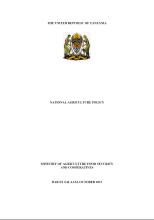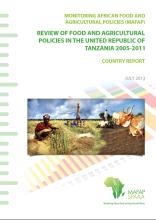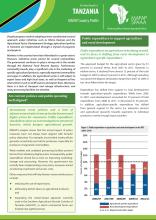Land Library
Welcome to the Land Portal Library. Explore our vast collection of open-access resources (over 74,000) including reports, journal articles, research papers, peer-reviewed publications, legal documents, videos and much more.
/ library resources
Showing items 1 through 9 of 13.In the search for rural transformation, this paper analyses the effect of agriculture on rural nonfarm entrepreneurship (NFE) highlighting the role of land rights and assesses the impact of rural NFE on households’ livelihood focusing on rural Burkina Faso.
Utilization of agricultural land for non-agricultural purposes poses a threat to food production and agriculture commercialization. Hence, this study examined Rural Land Utilization and Commercial Agriculture among Female arable Crop Farmers in South West Nigeria.
This paper focuses on gender mainstreaming in modeling the impacts of climate change by development sector.
This study examines the effect of land rights on agricultural outcomes in Rwanda. We characterize the effects of land rights from two perspectives. The first one is land rights indicated by the right to sell and guarantee land and the second one is land titling.
The NAP 2013 aims at addressing challenges that continue to hinder the development of the agricultural sector; these include low productivity; over dependence on rain-fed agriculture; inadequate agriculture support services; poor infrastructure; weak agro-industries; low quality of agricultu
An Act to provide the establishment of the National Irrigation Commission; to provide for the development,operation and maintenance of irrigation and drainage systems; to provide for effective implementation of the National Irrigation Policy, the National Irrigation Development Strategy and to pr
This report presents findings from the first agricultural policy review conducted by the Monitoring African Food and Agricultural Policies (MAFAP) project in the United Republic of Tanzania. The report reviews key economic issues and the main policy decisions affecting the agricultural sector.
FAO is working with national partners to set up a sustainable system for monitoring the impact of food and agricultural policies for the first time in Africa. Through MAFAP, FAO has developed common indicators for monitoring key commodities and public expenditure in agriculture.
Despite progress made in adopting a more coordinated sectoral approach under initiatives such as Kilimo Kwanza and the Agricultural Sector Development Strategy, agricultural policies in Tanzania are implemented through a myriad of programs and projects.






